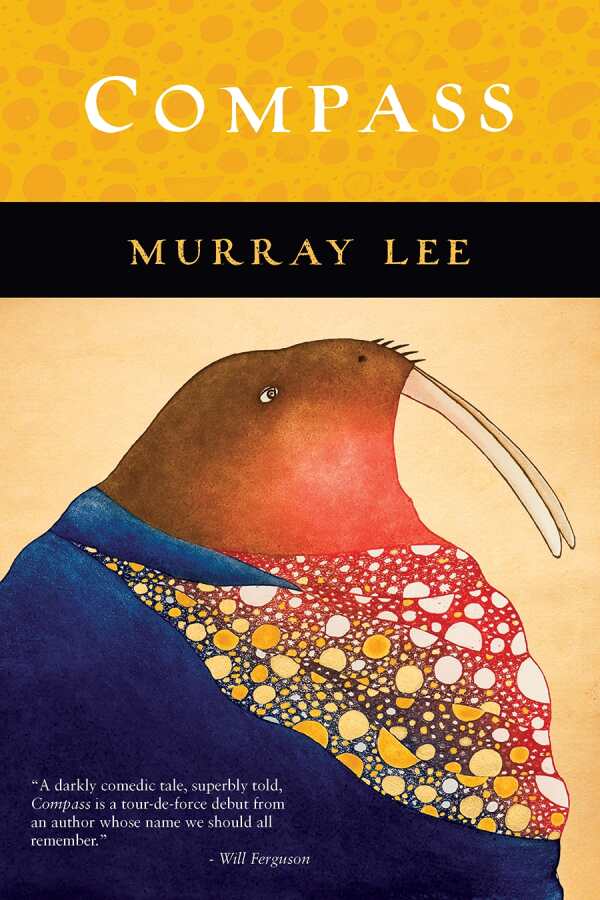Compass
In Murray Lee’s engrossing novel Compass, a travel writer with an encyclopedic knowledge of previous polar expeditions sets out on his own trip to the Arctic.
Guy narrates, mixing dark comedy into his tale with high dramatic stakes. After years of touring to lecture about the exploits of failed explorers, during which he gave others the false impression that his own life involved similar adventures, Guy decides to validate his persona with a trip to northern Canada and the Arctic Circle. Underprepared and overconfident, he hires a guide and sets out to see the edge of the Arctic ice floe. That’s when strange and dangerous occurrences start happening. As Guy starts to crack under the pressure, his survival becomes more complicated and less assured.
Both the polar environment and the lives of its inhabitants are rendered in great detail throughout. While Guy is out of his element for most of his trip, he is always cognizant of his settings—and of the dangers that they represent. As the locals maneuver snowmobiles through deadly conditions, and the shopping outposts stock what they can to facilitate life, the twenty-four-hour sunlight disorients Guy, making time seem unreliable. The stark Arctic is made to ably contrast with Guy’s inexperience. And the legend of Sedna, an Inuit sea goddess, occupies Guy’s thoughts; he wonders if she might play a role in his attempts to survive on the ice floe.
Both a gripping tale about an explorer’s bravado and a witty satirization of the expedition stories that fascinate armchair adventurers, Compass is a novel that follows an outsider to the edge of the world—and to the edge of his sanity.
Reviewed by
Jeff Fleischer
Disclosure: This article is not an endorsement, but a review. The publisher of this book provided free copies of the book to have their book reviewed by a professional reviewer. No fee was paid by the publisher for this review. Foreword Reviews only recommends books that we love. Foreword Magazine, Inc. is disclosing this in accordance with the Federal Trade Commission’s 16 CFR, Part 255.

